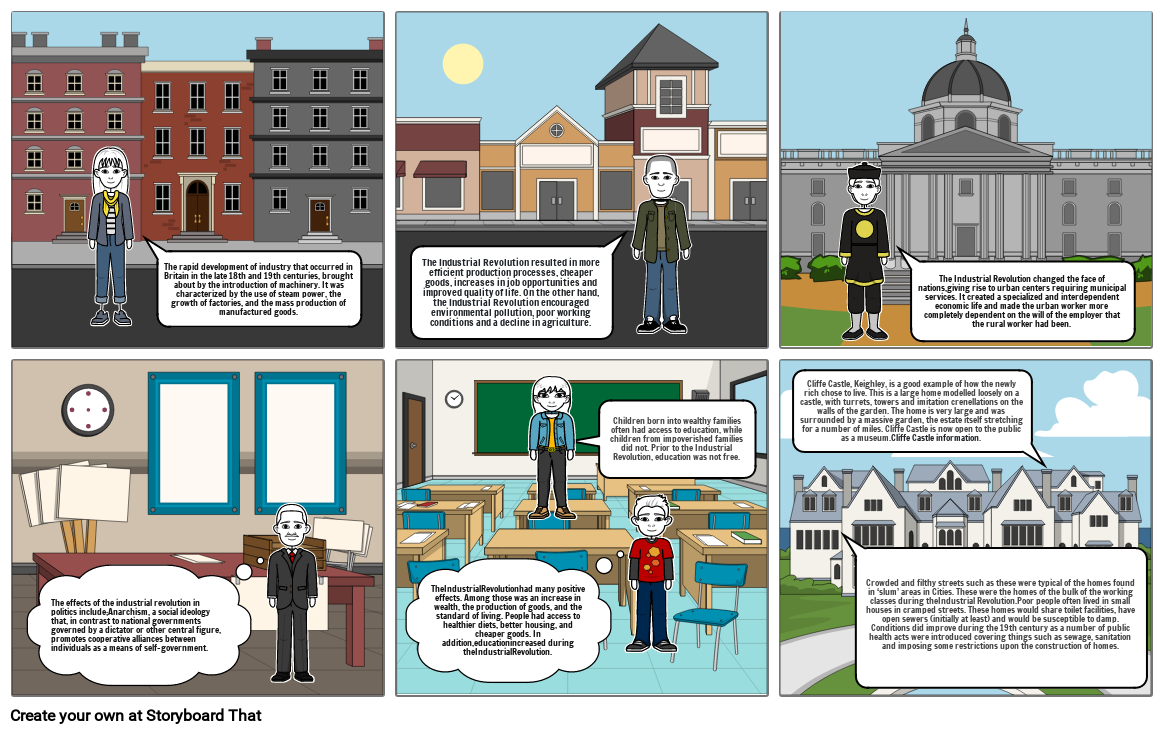SAB STORYBOARD

Storyboard Text
- The rapid development of industry that occurred in Britain in the late 18th and 19th centuries, brought about by the introduction of machinery. It was characterized by the use of steam power, the growth of factories, and the mass production of manufactured goods.
- The Industrial Revolution resulted in more efficient production processes, cheaper goods, increases in job opportunities and improved quality of life. On the other hand, the Industrial Revolution encouraged environmental pollution, poor working conditions and a decline in agriculture.
- The Industrial Revolution changed the face of nations,giving rise to urban centers requiring municipal services. It created a specialized and interdependent economic life and made the urban worker more completely dependent on the will of the employer that the rural worker had been.
- The effects of the industrial revolution in politics include;Anarchism, a social ideology that, in contrast to national governments governed by a dictator or other central figure, promotes cooperative alliances between individuals as a means of self-government.
- TheIndustrialRevolutionhad many positive effects. Among those was an increase in wealth, the production of goods, and the standard of living. People had access to healthier diets, better housing, and cheaper goods. In addition,educationincreased during theIndustrialRevolution.
- Children born into wealthy families often had access to education, while children from impoverished families did not. Prior to the Industrial Revolution, education was not free.
- Cliffe Castle, Keighley, is a good example of how the newly rich chose to live. This is a large home modelled loosely on a castle, with turrets, towers and imitation crenellations on the walls of the garden. The home is very large and was surrounded by a massive garden, the estate itself stretching for a number of miles. Cliffe Castle is now open to the public as a museum.Cliffe Castle information.
- Crowded and filthy streets such as these were typical of the homes found in ‘slum’ areas in Cities. These were the homes of the bulk of the working classes during theIndustrial Revolution.Poor people often lived in small houses in cramped streets. These homes would share toilet facilities, have open sewers (initially at least) and would be susceptible to damp. Conditions did improve during the 19th century as a number of public health acts were introduced covering things such as sewage, sanitation and imposing some restrictions upon the construction of homes.
Over 30 Million Storyboards Created

